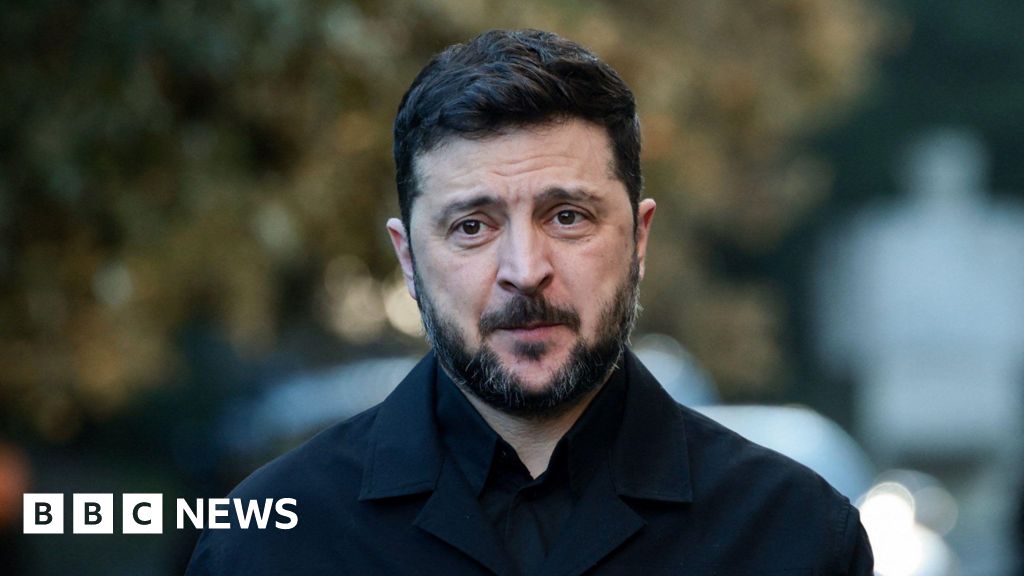Larry Ellison pledges $40 billion personal guarantee for Paramount’s Warner Bros. bid
Billionaire Larry Ellison has stepped up, agreeing to personally guarantee part of Paramount’s bid for rival Warner Bros. Discovery.
Ellison’s personal guarantee of $40.4 billion in equity, disclosed Monday, ups the ante in the acrimonious auction for Warner Bros. movie and TV studios, HBO, CNN and Food Network.
Ellison, whose son David Ellison is chief executive of Paramount, agreed not to revoke the Ellison family trust or adversely transfer its assets while the transaction is pending. Paramount’s $30-a-share offer remains unchanged.
Warner Bros. Discovery’s board this month awarded the prize to Netflix. The board rejected Paramount’s $108.4-billion deal, largely over concerns about the perceived shakiness of Paramount’s financing.
Paramount shifted gears and launched a hostile takeover, appealing directly to Warner shareholders, offering them $30 a share.
“We amended this Offer to address Warner Bros. stated concerns regarding the Prior Proposal and the December 8 Offer,” Paramount said in a Monday Securities & Exchange Commission filing. “Mr. Larry Ellison is providing a personal guarantee of the Ellison Trust’s $40.4 billion funding obligation.”
The Ellison family acquired the controlling stake in Paramount in August. The family launched their pursuit of Warner Bros. in September but Warner’s board unanimously rejected six Paramount proposals.
Paramount started with a $19 a share bid for the entire company. Netflix has offered $27.75 a share and only wants the Burbank studios, HBO and the HBO Max streaming service. Paramount executives have held meetings with Warner investors in New York, where they echoed the proposal they’d submitted in the closing hours of last week’s auction.
On Monday, Paramount also agreed to increase the termination fee to $5.8 billion from $5 billion, matching the one that Netflix offered.
Warner Bros. board voted unanimously to accept Netflix’s $72-billion offer, citing Netflix’s stronger financial position, the board has said.
Three Middle Eastern sovereign wealth funds representing royal families in Saudi Arabia, Qatar and Abu Dhabi have agreed to provide $24 billion of the $40.4-billion equity component that Ellison is backing.
The Ellison family has agreed to cover $11.8-billion of that. Initially, Paramount’s bid included the private equity firm of Jared Kushner, Trump’s son-in-law, but Kushner withdrew his firm last week.
Paramount confirmed that the Ellison family trust owns about 1.16 billion shares of Oracle common stock and that all material liabilities are publicly disclosed.
“In an effort to address Warner Bros.’s amorphous need for ‘flexibility’ in interim operations, Paramount’s revised proposed merger agreement offers further improved flexibility to Warner Bros. on debt refinancing transactions, representations and interim operating covenants,” Paramount said in its statement.
Paramount has been aggressively pursuing Warner Bros. for months.
David Ellison was stunned earlier this month when the Warner Bros. board agreed to a deal with Netflix for $82.7 billion for the streaming and studio assets.
Paramount subsequently launched its hostile takeover offer in a direct appeal to shareholders. Warner Bros. board urged shareholders to reject Paramount’s offer, which includes $54 billion in debt commitments, deeming it “inferior” and “inadequate.” The board singled out what it viewed as uncertain financing and the risk implicit in a revocable trust that could cause Paramount to terminate the deal at any time.
Paramount, controlled by the Ellisons, is competing with the most valuable entertainment company in the world to acquire Warner Bros.
Executives from both Paramount and Netflix have argued that they would be the best owners and utilize the Warner Bros. library to boost their streaming operations.
In its letter to shareholders and a detailed 94-page regulatory filing last week, Warner Bros. hammered away at risks in the Paramount offer, including what the company described as the Ellison family’s failure to adequately backstop their equity commitment.
The equity is supported by “an unknown and opaque revocable trust,” the board said. The documents Paramount provided “contain gaps, loopholes and limitations that put you, our shareholders, and our company at risk.”
Netflix also announced Monday that it has refinanced part of a $59 billion bridge loan with cheaper and longer-term debt.
Bloomberg contributed to this report.

